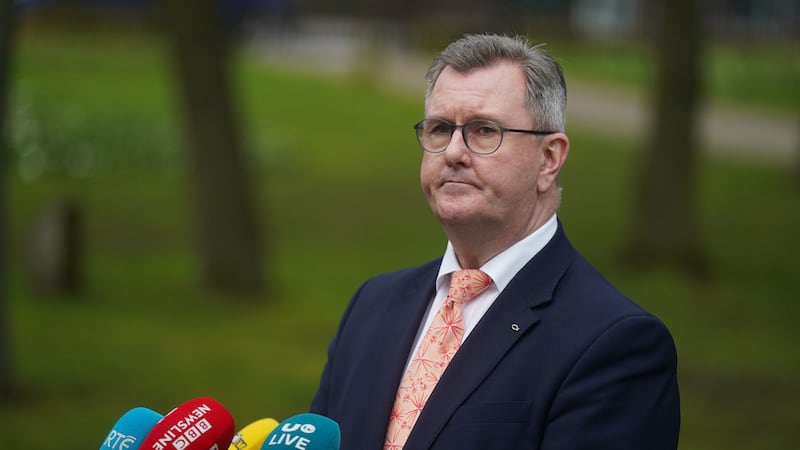What exactly is unionism? That’s the main question Jeffrey Donaldson must address in deciding whether the DUP should return to Stormont. While his decision will determine the Assembly’s survival chances, its real significance is that it will define the nature of unionism, its rationale and ultimately, its future.
Unionism consists of three interwoven strands: political, cultural and religious, probably best illustrated in the Orange Order. It embraces a wide spectrum from Alliance’s broad unionism, through the UUP to the DUP and ultimately the TUV. While the DUP is currently seen as the cutting edge of unionism, it tends to be more of a blunt instrument.
Politically, unionism is a desire for union with Britain, a concept which ranges from 19th century total merger (when there was no Irish parliament) to Stormont’s 20th century devolved government.
The northern state’s unionism was not just pro-British, but anti-Catholic as evidenced by its discrimination. Other than an apparently genetic compulsion to be right wing, unionism still lacks a political philosophy, settling instead for adherence to a romantic image of imperial Britain.
Today it does not just want union with Britain, it wants union with a Britain which no longer exists, as portrayed in Vera Lynn’s wartime song, There’ll Always Be An England.
Britain is not a nation and there is no specifically British culture. The English, Welsh, Scots and Irish have their own thriving cultures, so when the Good Friday Agreement (GFA) awarded unionists a “British identity”, it was a meaningless concept.
It covered up unionism’s cultural weakness, which is largely reflected in flag flying and a medieval devotion to the monarchy. Meanwhile, most unionists deny a cultural affinity with where they have lived for 400 years.
They dwell in the Irish language, in places like the yew forest field (Ahoghill) and the middle townland (Ballymena) but, like Rupert Brooke, they believe that, “There is some corner of a foreign field/ that is forever England”.
Finally, religious unionism offers loyalty to a monarch, who is also head of the Church of England. Oddly, Presbyterians are loyal to the head of the state’s official religion, despite being previously persecuted for not adhering to that religion. Unionism sabotaged Presbyterian radicalism.
In deciding whether to return to Stormont, Jeffrey must achieve cohesion of this political, cultural and religious mix. The Windsor Framework does not meet six of his party’s seven conditions for re-entering government, so he must abstain from Stormont. If he stays out, he loses Alliance and the UUP. If he goes in, he loses the TUV and loyalism. He also loses face.
The other parties’ argument that the Assembly’s return is necessary to tackle collapsing public services is sadly inaccurate. Stormont’s preoccupation with sectarian rivalry effectively mutilated those services over the past 25 years. Its resurrection will make little difference.
So what does Jeffrey do next? Without an ideology, he has no theory to guide his practice. Unionism has historically relied on instinct rather than strategy and its instinct has generally been poor. (In what was a victory for unionism, nationalists accepted the legitimacy of partition in the GFA. The DUP opposed the Agreement.)
Nationalism is now a one-party state, headed by SF. (This paper’s recent opinion poll revealed that the SDLP has effectively gone.) Unionism is an unruly mess. So far, Jeffrey’s Stormont boycott has increased electoral support for his party, even though 41 per cent of DUP voters are undecided about the Windsor Framework. (Surprisingly, 41 per cent of SF voters have the same view.)
He is now the main character in a unionism which has become little more than an apolitical assortment of sectarian memorabilia about a glorious past. Unless he can transform that historical obsession into a politically constructive future, he will become just another name in a roll-call of failure.
It will not be easy. However, unless he succeeds, the question will not be, “What is unionism?” Instead, future generations will ask, “What was unionism?”









